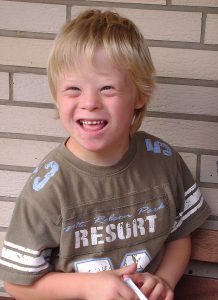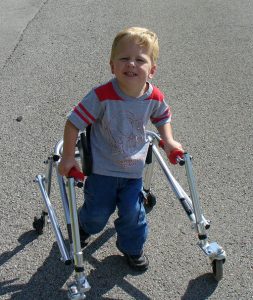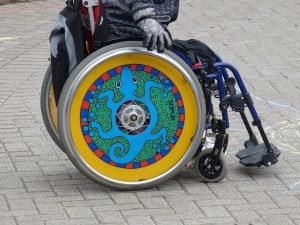
Working with special needs children has been one of my passions since I was eight years old, so it’s important to me that Children’s Books and Learning serve the special education population.
This is an infinitely varied population. The Masters In Special Education website has an excellent infographic on what they call the “anatomy of a special needs child.” When you take into account the possibility of multiple disabilities and each child’s unique personality, the only constant is that this population often needs more support than their typically developing peers.
Here are a few ways you can support a child with special needs.
Expose your child to positive role models who have disabilities. It’s important for us to see people like us being successful and admired. Our culture often presents a very narrow view of what’s attractive and desirable. Think of the latest blockbuster movies. How many of them featured people with disabilities at all, let alone in important roles? That makes it especially important that you find opportunities to find and point out successful people who are like your child.
Make modifications for your child as needed, while encouraging as much independence as possible. It’s a hard balance to keep. We want to protect our children and respect their abilities without pushing them so far and so fast we do harm. We want them to

be as independent as they can be while still acknowledging that sometimes there are limitations to what they can do.
Set rules and stick to them. Inconsistency in following rules is problematic even for typically developing children, but children with special needs can become confused when they don’t know what’s expected of them.
Follow a regular schedule. Some children with autism and cognitive delays do best when they know what to expect from their day. That said, life is uncertain, so there are bound to be times when the routine just can’t be followed. When that happens…
As soon as possible, let your child know what to expect when something keeps him or her from following the usual routine. One day at our school, the music teacher was out sick and her classes were canceled for the day. I told my students about the change as soon as I learned about it and reminded them at intervals throughout the day. They had the chance to ask questions and discuss their disappointment. When music time came and I gave them an alternate activity, everyone was fine with the departure from their normal schedule.
Above all…
Appreciate your child’s strengths and positive qualities. Is she good at music? Does he have a great smile? Is she kind to others? Can he remember 10,000 facts about dinosaurs? Celebrate the things that make your child unique and wonderful, even if they weren’t the things you expected when you started this journey.
You may remember the famous essay “Welcome to Holland,” by Emily Peri Kingsley. Some parents of special needs kids love that article. Some hate it. Some used to hate it but now they love it. They all agree. Having a child with special needs isn’t what they expected, maybe not what they thought they would have wished for, but in the end, that “special kid” really did turn out to be special–in the very best of ways.
remember the famous essay “Welcome to Holland,” by Emily Peri Kingsley. Some parents of special needs kids love that article. Some hate it. Some used to hate it but now they love it. They all agree. Having a child with special needs isn’t what they expected, maybe not what they thought they would have wished for, but in the end, that “special kid” really did turn out to be special–in the very best of ways.
Where We Come In
You know your child better th an anyone. You’re your child’s best advocate and the person who will love him or her more than anyone in all the world. All we can do is provide information and support–but we will do that as well as we can.
an anyone. You’re your child’s best advocate and the person who will love him or her more than anyone in all the world. All we can do is provide information and support–but we will do that as well as we can.
Most of the books and materials discussed on this site will be relevant to or easily adapted for students with special needs. However, as the site grows, there will also be articles, adaptive materials, and learning games and activities specifically for children with a variety of physical and cognitive disabilities.
Let us know if there’s something you want us to add, and we’ll do our best to do it. You can send a message to beth@childrensbooksandlearning.com.
You might also enjoy our pages on Active Play, Books & Reading, Creative Play, and Discovery Play.
